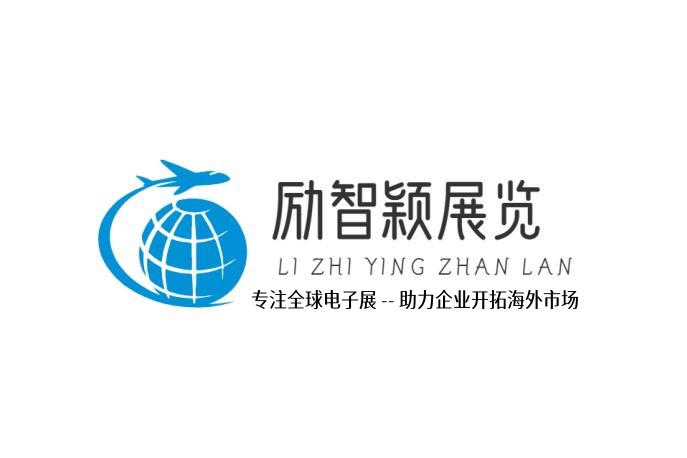科学发现国际登 记日内瓦条约》(Genava Treaty on the International Recording of Scientific Discoveries)。1978年3月由保 加利亚等几个国家签订于瑞士日内瓦。 该条约目的在于通过对不为专利法保护的科学发现及 作者的“发现者”权利提供保护和登记并得到国际承 认,促进科技进步和这些发现的利用。条约要求建立 “科学发现国际登记簿”,对科学发现者及科学发现的 内容进行登记并公告。申请登记的科学发现者必须是 自然人,而不能是法人。其他人对发现也作了工作的, 登记时须注明其所作的工作。科学发现者必须在完成 科学发现后10年内提出申请。负责进行登记的世界知 识产权组织国际局对申请进行形式审查。你知道科学发现也能被国际登记吗?1978年,日内瓦条约让这一梦想成真。想象一下,你的新发现不仅能得到国际认可,还能保障你的权利和自由。这不是梦,这是科学发现国际登记程序!它定义了科学发现,并规定了如何在全球范围内公正记录和共享这些知识。任何国家的公民或居民都可以申请,只需提供发现人的详细信息和科学发现的描述。国际局会颁发证书,并在公报中公布,让全世界都能看到你的成就。科学发现国际注册具有多方面的重要意义和作用:首先,它确立了发现的优先权。在科学界,谁首先做出了某个重要的发现往往至关重要。通过国际注册,可以明确地记录发现的时间和提出者,避免后续可能出现的优先权争议。其次,有助于促进科学交流与合作。注册的信息可以在国际范围内公开,使其他科研人员能够及时了解到最新的科学发现,从而激发新的研究思路和合作机会。再者,增强了科学发现的可信度和权威性。经过国际注册的发现,经过了一定的审核和认证程序,能够让学术界和社会更认可和信任这些成果。此外,还能为科研人员提供一定的知识产权保护。虽然科学发现本身的知识产权保护方式与技术发明有所不同,但注册可以在一定程度上为发现者的声誉和后续研究的开展提供保障。最后,对于科学发现的推广和应用也具有积极作用。注册使得相关发现更容易被产业界和社会各界所知晓,加速其转化为实际的应用和社会效益。1978年3月3日在日内瓦通过各缔约国,考虑到建立世界知识产权组织公约第二条第(Ⅷ)项关于科学发现的规定,希望建立一知识产种制度,把发现人的姓名与其科学发现一起予以公布,不加歧视地对发现人给予鼓励,以促进科学的发展,希望建立一种制度,使科学界和全世界可得参考新科学发现的内容,以促进上述科学发现的情报交流,使科学界以及全世界受益,考虑到科学发现国际登记制度在促进科学情报的交流方面,符合各国特别是发展中国家的利益,决定缔结一项条约,在世界知识产权组织的机构内,建立科学发现国际登记制度。中文名科学发现国际登 科学发现国际登记日内瓦条约【分 类】 知识产权【时 效 性】科学发现国际登记日内瓦条约达成协议如下:内容第一条 定义(1) (定义) 在本条约中:(Ⅰ) “科学发现”指对迄今尚未被认识和尚不能证实的物质世界的现象、性质或规律的认识;(Ⅱ) “发现人”指本人通过观察、研究、试验或推理并以明确方式得出其认识而完成一项科学发现的自然人;几个自然人在作出科学发现过程中共同完成上述要求的,提到发现人时应视为提到所有的发现人;(Ⅲ) “国际登记”指由国际局在该局所保存的国际科学发现登记薄中对科学发现的说明和其他规定细节进行登记的行为和结果;(Ⅳ) “申请”指国际登记的申请;(Ⅴ) “申请人”指提出申请的自然人或法人;(Ⅵ) “发现日期”指科学发现第一次发表或公布于众的日期;(Ⅶ) “缔约国”指缔结本条约的国家;(Ⅷ) “大会”指第十二条所述的大会;(Ⅸ) “本组织”指世界知识产权组织;(Ⅹ) “国际局”指本组织的国际局;(Ⅺ) “总干事”指本组织的总干事。在科学领域,负责科学发现国际注册的国际组织可能因不同的学科和研究领域而有所不同。例如,国际纯粹与应用化学联合会(IUPAC)在化学领域的研究发现注册方面发挥着一定作用。国际天文学联合会(IAU)在天文学领域的新发现注册方面具有重要地位。此外,世界知识产权组织(WIPO)虽然主要侧重于专利和知识产权保护,但在某些与科学发现相关的知识产权方面也可能有一定的涉及。需要注意的是,具体的负责组织可能会随着科学研究的发展和国际合作的变化而有所调整和新增。The Geneva treaty on the international recording of scientific discoveries. In March 1978, it was signed in Geneva, Switzerland by several countries such as Bulgaria. The purpose of the treaty is to promote scientific and technological progress and the use of scientific discoveries that are not protected by the patent law and the author's "discoverer" rights by providing protection, registration and international recognition. The treaty requires the establishment of an "international register of scientific discoveries" to register and announce the scientific discoverers and the contents of scientific discoveries. Scientific discoverers applying for registration must be natural persons, not legal persons. If other people have also done work on the discovery, they must indicate the work they have done when registering. Scientific discoverers must apply within 10 years after completing scientific discoveries. The International Bureau of the World Intellectual Property Organization, which is responsible for registration, conducts formal examination of the application. Do you know that scientific discoveries can also be registered internationally? In 1978, the Geneva Treaty made this dream come true. Imagine that your new discovery will not only gain international recognition, but also protect your rights and freedoms. This is not a dream, this is an international registration procedure for scientific discoveries! It defines scientific discoveries and stipulates how to record and share this knowledge fairly on a global scale. Citizens or residents of any country can apply, as long as they provide detailed information about the discoverer and a description of the scientific discovery. The International Bureau will issue certificates and publish them in the bulletin, so that the whole world can see your achievements. The international registration of scientific discovery has many important meanings and functions: first, it establishes the priority of discovery. In the scientific community, it is often very important who made an important discovery first. Through international registration, we can clearly record the time of discovery and the originator, and avoid the possible priority disputes in the future. Secondly, it helps to promote scientific exchanges and cooperation. The registered information can be made public internationally, so that other researchers can know the latest scientific discoveries in time, thus stimulating new research ideas and cooperation opportunities. Furthermore, it enhances the credibility and authority of scientific discoveries. After the discovery of international registration and certain auditing and certification procedures, these achievements can be more recognized and trusted by the academic community and society. In addition, it can also provide some intellectual property protection for researchers. Although the way of intellectual property protection of scientific discovery itself is different from that of technological invention, registration can protect the reputation of the discoverer and the follow-up research to a certain extent. Finally, it also plays a positive role in the popularization and application of scientific discovery. Registration makes the relevant findings easier to be known by industry and all walks of life, and accelerates its transformation into practical applications and social benefits. On March 3, 1978, in Geneva, the States parties, taking into account the provisions of Article 2 (ⅷ) of the Convention establishing the World Intellectual Property Organization, hoped to establish a system of knowledge production, announce the names of discoverers together with their scientific discoveries, encourage discoverers without discrimination, and promote the development of science, hoping to establish a system so that the scientific community and the whole world can refer to the contents of new scientific discoveries. In order to promote the information exchange of the above-mentioned scientific discoveries, so as to benefit the scientific community and the whole world. Considering that the international registration system of scientific discoveries is in line with the interests of all countries, especially developing countries, it is decided to conclude a treaty to establish an international registration system of scientific discoveries within the institutions of the World Intellectual Property Organization. International registration of scientific discoveries Geneva treaty [classification] intellectual property rights [timeliness] Geneva treaty on international registration of scientific discoveries reached an agreement as follows: Contents Article 1 Definition (1) (Definition) In this treaty: (i) "scientific discovery" refers to the understanding of the phenomena, nature or laws of the material world that have not been recognized so far and cannot be confirmed by monks; (ii) "discoverer" refers to a natural person who has made a scientific discovery through observation, research, experiment or reasoning and obtained his knowledge in a clear way; If several natural persons jointly complete the above requirements in the process of making scientific discoveries, the mention of discoverers shall be deemed to refer to all discoverers; (iii) "international registration" refers to the act and result of registering the description and other specified details of scientific discoveries by the International Bureau in the international register of scientific discoveries kept by the Bureau; (iv) "application" means an application for international registration; (v) "Applicant" means the natural person or legal person who makes the application; (vi) "date of discovery" means the date when a scientific discovery was first published or made public; (vii) "Contracting State" means the State which has concluded this Treaty; (viii) "Congress" means the Congress mentioned in Article 12; (vii) "Organization" means the World Intellectual Property Organization; (x) "International Bureau" means the International Bureau of the Organization; (viii) "Director-General" means the Director-General of the Organization. In the field of science, the international organizations responsible for the international registration of scientific discoveries may be different for different disciplines and research fields. For example, the International Union of Pure and Applied Chemistry (IUPAC) plays a certain role in the registration of research findings in the chemical field. The International Astronomical Union (IAU) plays an important role in the registration of new discoveries in astronomy. In addition, although the World Intellectual Property Organization (WIPO) mainly focuses on the protection of patents and intellectual property rights, it may also be involved in some intellectual property rights related to scientific discoveries. It should be noted that the specific responsible organizations may be adjusted and added with the development of scientific research and changes in international cooperation.
《科学发现国际登 记日内瓦条约》
2024-11-06 21:42 浏览:2760 搜索引擎搜索“广企汇”
温馨提示:为防找不到此信息,请务必收藏信息以备急用! 联系我时,请说明是在广企汇看到的信息,谢谢。
温馨提示:为防找不到此信息,请务必收藏信息以备急用! 联系我时,请说明是在广企汇看到的信息,谢谢。
展开全文+
发布人:ddbd**** IP:124.223.189***
举报/删稿
展会推荐

- CCF2026上海国际家居及时尚生活博览会
- 上海市2026-03-19 至 2026-03-21

- 2026第35届中国【北京】国际健康产业博览会
- 北京2026-04-28 至 2026-04-30

- 第十四届中国(廊坊)国际管道博览会
- 廊坊市2026-04-22 至 2026-04-24

- 2026第23届中国(青岛) 国际食品加工和包装机械展览会
- 青岛市2026-05-29 至 2026-05-31

- 2026年11月德国慕尼黑国际电子元器件博览会
- 广州市2026-11-10 至 2026-11-13

- 2026第二届中国(重庆)测量控制与仪器仪表展
- 重庆市2026-05-13 至 2026-05-15

- 2026上海国际酒店及餐饮业博览会
- 上海市2026-03-30 至 2026-04-02

- 2026 深圳国际新能源汽车技术暨智慧出行展览会
- 深圳市2026-03-20 至 2026-03-23
- 人间烟火
- 2024-11-07浏览:1785
- 尺子断了
- 2024-11-07浏览:2821
- 世界最安全的赛道,北马却变得不再像一场城市节日
- 2024-11-07浏览:1832
- 不抱怨的体验
- 2024-11-07浏览:2421
- 西游漫话05——猪头第二次诬陷孙悟空
- 2024-11-06浏览:1540
- 2024.11.6
- 2024-11-06浏览:2205
- 我和连环画的故事
- 2024-11-06浏览:2385
- 孙权
- 2024-11-06浏览:2663
- 新一代人工智能教育的本土探索与创新 | 中小学人工智能教育展示活动
- 2024-11-06浏览:1753
- 百度Al评价小牮
- 2024-11-06浏览:2397
- 探索宝藏小城红塔区,来一场文化与历史交融的“City Walk”
- 2024-11-06浏览:2288
- 骑行“秋城”,探秘乌蒙!2024环昭通国际公路自行车赛激情开赛
- 2024-11-06浏览:2446
- 唐诗五言古体诗欣赏(五)---孟浩然篇
- 2024-11-06浏览:2641
- 波士顿科学亮相第七届进博会,与“健康中国”共进致远
- 2024-11-06浏览:2443
- 通知公告 | 关于举办生态环境职业教育能力建设培训班的通知
- 2024-11-06浏览:1801
- 《永夜星河》OST上线全民K歌,“VIP音效”带你开启奇幻冒险
- 2024-11-06浏览:3190
- 【一线传真】老同志,新照片!
- 2024-11-06浏览:2495
- 国内外在桥梁防撞技术上的最新突破与成功案例
- 2024-11-06浏览:2293
- 老实人
- 2024-11-06浏览:2536
- 且与或
- 2024-11-06浏览:1762





